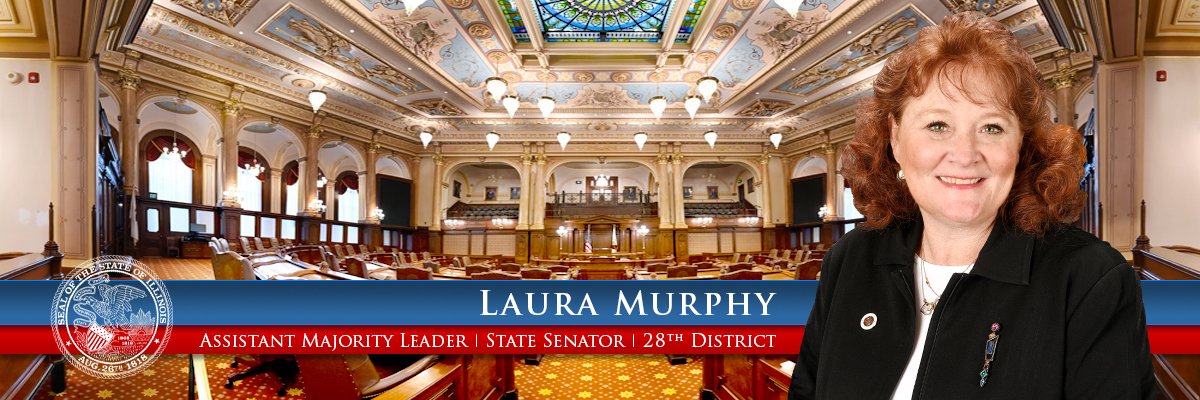Murphy advances pedestrian safety legislation in memory of local traffic losses
- Details
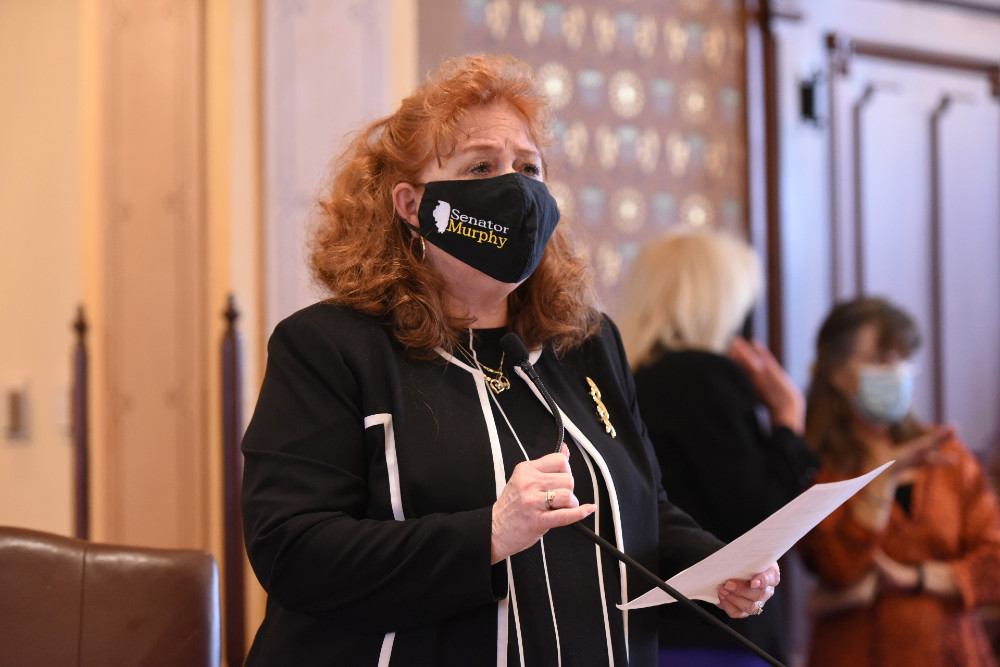 SPRINGFIELD – Following a series of pedestrian deaths in the community she represents, State Senator Laura Murphy (D-Des Plaines) has advanced a plan to prevent further tragedy by requiring the Illinois Department of Transportation to look more closely into traffic accidents on state highways that result in the death of a pedestrian.
SPRINGFIELD – Following a series of pedestrian deaths in the community she represents, State Senator Laura Murphy (D-Des Plaines) has advanced a plan to prevent further tragedy by requiring the Illinois Department of Transportation to look more closely into traffic accidents on state highways that result in the death of a pedestrian.
“The design of a roadway can play a large part in traffic accidents, with deadly consequences,” Murphy said. “By responding to these accidents with action, we can pinpoint those hazards and make a fix before more lives are lost.”
The legislation would require IDOT to conduct a traffic study after any fatal pedestrian accident at the intersection of a state highway. The study would include a rundown of potential methods to improve safety at the site, such as design improvements and traffic control devices. The results of each study would be publicly accessible via IDOT’s website.
Murphy was inspired to sponsor the legislation following a series of three fatal accidents in just two years on Miner Street, between Pearson Street and Graceland Avenue, in Des Plaines.
After four people were hospitalized following two separate accidents two hours apart at the location, police conducted a sting operation: Officers in plainclothes walked across the crosswalk and if drivers failed to yield, they were issued a citation. Within a six-hour period, 20 citations were issued.
“We all have a problem area in our neighborhood—an intersection or crosswalk that just doesn’t feel safe,” Murphy said. “It’s critical that we identify and remedy those dangers early to prevent avoidable losses.”
Senate Bill 1791 passed the Senate Wednesday and now heads to the House.
Murphy plan would improve transparency for doctors returning to the field
- Details
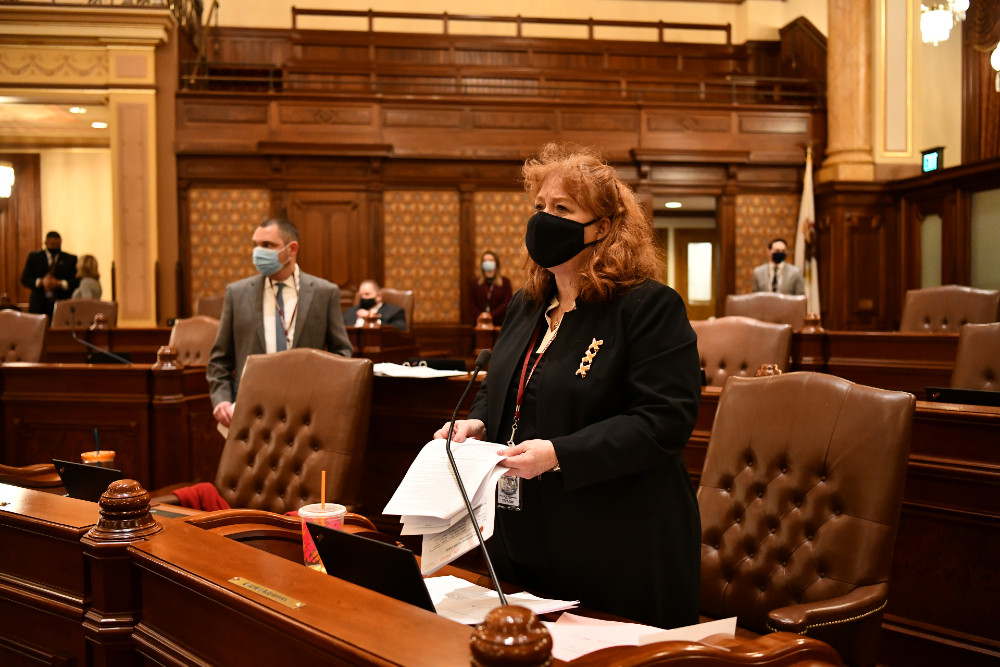 SPRINGFIELD – To increase transparency and cut red tape for doctors trying to restore their medical licenses, State Senator Laura Murphy (D-Des Plaines) is leading a proposal that would require the Illinois Department of Financial and Professional Regulation to publish detailed instructions on its website.
SPRINGFIELD – To increase transparency and cut red tape for doctors trying to restore their medical licenses, State Senator Laura Murphy (D-Des Plaines) is leading a proposal that would require the Illinois Department of Financial and Professional Regulation to publish detailed instructions on its website.
“If a physician has served their punishment and wants to have their license restored, they have the right to know how to go about it,” Murphy said. “This initiative would ensure specific steps and requirements are laid out in one easily accessible location.”
Murphy’s initiative would require IDFPR to post on its website the process for requesting a hearing on disciplinary action and the process for restoring a medical license after successful completion of a term of probation, suspension or revocation.
Illinois physicians already possess these rights, but they must often wade through complicated legal codes for information about the necessary steps. As a result, requesting a hearing or license restoration can be confusing and frustrating.
“A doctor looking to return to the field should be able to pursue license restoration without worrying about wrong turns and headaches,” Murphy said. “This legislation won’t change the procedure itself, but it will make it more transparent.”
Senate Bill 1790 passed the Senate Wednesday and now heads to the House.
Murphy: Municipalities must have clear guidelines when making annexation decisions
- Details
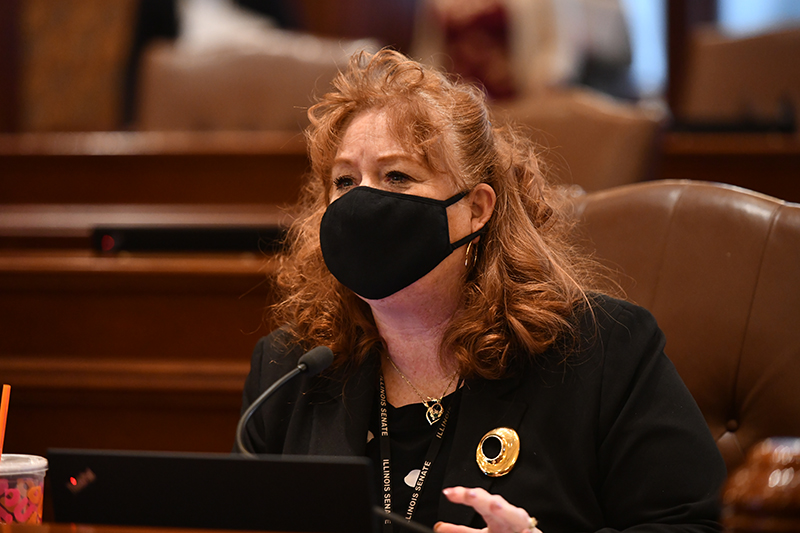 SPRINGFIELD – To clarify local governments’ authority to determine their own boundaries, State Senator Laura Murphy (D-Des Plaines) sponsored legislation to protect and strengthen municipalities’ rights to annex surrounding properties.
SPRINGFIELD – To clarify local governments’ authority to determine their own boundaries, State Senator Laura Murphy (D-Des Plaines) sponsored legislation to protect and strengthen municipalities’ rights to annex surrounding properties.
“There are statutory requirements in place to ensure local governments can annex property legally and with the best interests of the community in mind,” Murphy said. “Recent court rulings have complicated these requirements—this legislation sets them straight.”
In 2018, an appellate court in Will County rendered an annexation invalid, even though the annexation appeared to meet all statutory requirements. The ambiguity of this decision has caused problems for municipalities in other areas of the state, including Elk Grove Village in the district Murphy represents, where some property owners have attempted to legally challenge previous annexations meeting all statutory requirements in order to block future annexations.
To resolve this confusion and more clearly define the factors that determine an annexation’s validity, Murphy’s legislation would create clear statutory requirements for municipalities seeking annexation.
“Complicated rules and requirements make the process more difficult for local governments who want to follow the law,” Murphy said. “Municipalities must be able to rely on clear guidelines when making annexation decisions.”
Senate Bill 658, an initiative of the Village of Elk Grove, passed the Senate Thursday and now heads to the House.
Murphy advances plan to give park districts more time for COVID-19 recovery
- Details
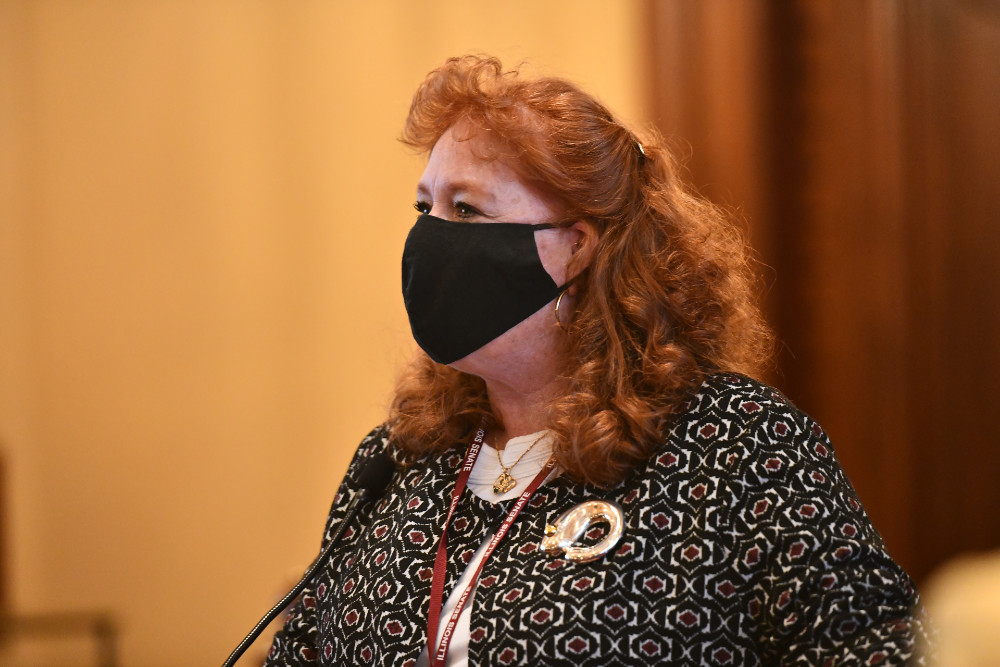 SPRINGFIELD – To provide support to local park districts as they recover from the COVID-19 pandemic, a measure sponsored by State Senator Laura Murphy (D-Des Plaines) that passed the Senate Wednesday would give park districts more time to complete projects funded through the Open Space Lands Acquisition and Development (OSLAD) grant program.
SPRINGFIELD – To provide support to local park districts as they recover from the COVID-19 pandemic, a measure sponsored by State Senator Laura Murphy (D-Des Plaines) that passed the Senate Wednesday would give park districts more time to complete projects funded through the Open Space Lands Acquisition and Development (OSLAD) grant program.
“Every community was impacted by the COVID-19 pandemic differently, and as a result, they are all recovering at a different pace,” Murphy said. “This initiative would give park districts the authority to set the timeline for their own community’s projects.”
The Illinois Department of Natural Resources, which administers the OSLAD grant program, provides an advance payment of 50% of the grant up front. State law requires grantees to complete projects within two years of receiving grant funds, meaning that park districts have just two years after this advance payment to complete projects.
The legislation Murphy has proposed would allow park districts to opt out of advance payments on OSLAD grants, delaying the start of the two-year grant timeline and giving them more authority over when to begin projects.
In addition to allowing park districts more freedom on future projects, Murphy’s initiative would also provide more flexibility on active grant projects by directing IDNR to consider recipients’ requests to extend deadlines.
“As our entire state works to recover from the COVID-19 crisis, flexibility is critical,” Murphy said. “We must give our local governments and park districts the time they need to make a full and complete recovery.”
Senate Bill 321 passed the Senate and now heads to the House.
More Articles …
Page 56 of 137
